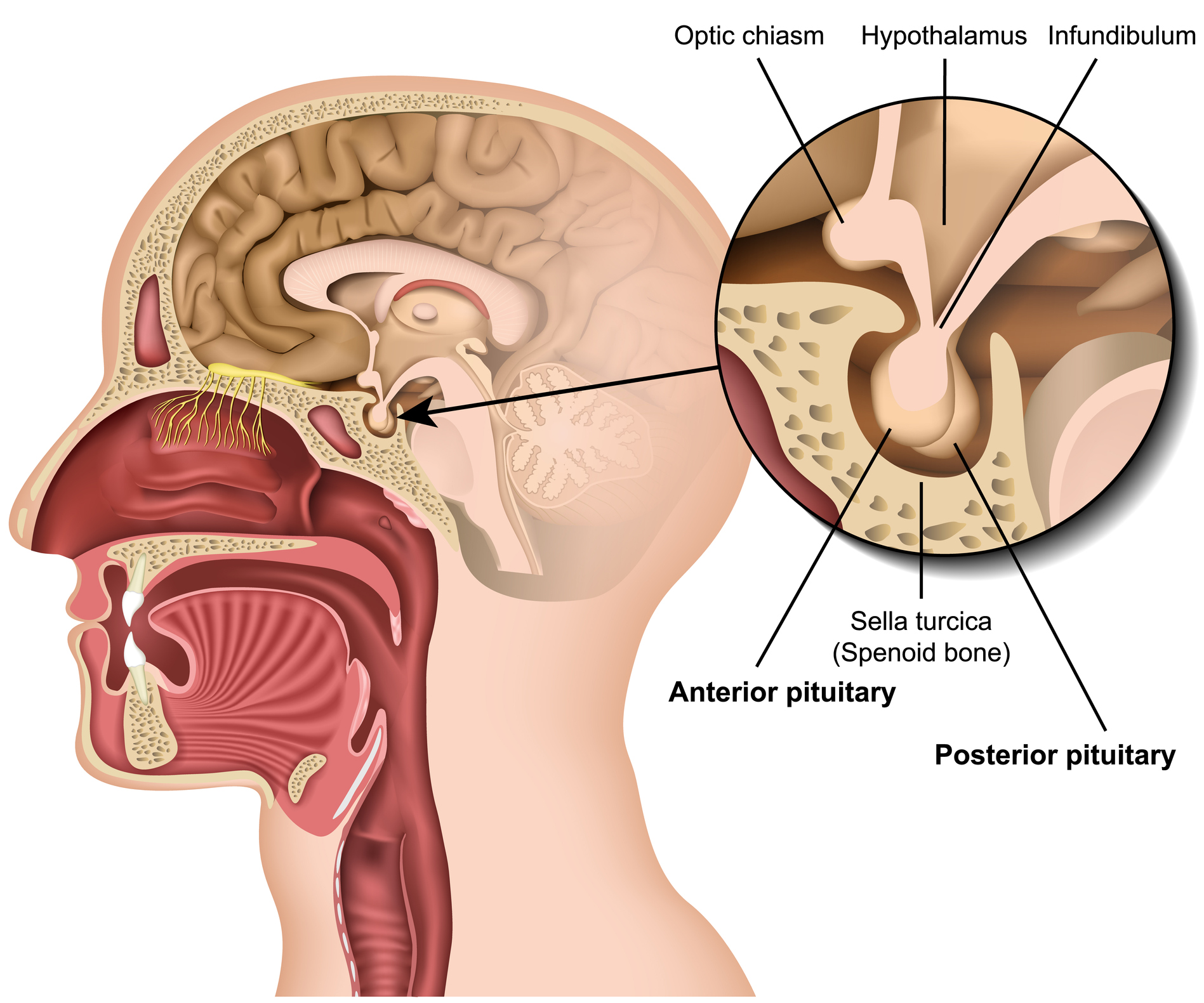
Pituitary Disorders
The pituitary gland is a tiny organ that resides inside the sella a bony structure that runs through the middle of the head behind the sinuses and nose and beneath the brain. Because of the numerous hormones it produces and releases that regulate various bodily functions by controlling other glands, the pituitary gland is referred to as the "master endocrine gland.". Overactivity and underactivity of the pituitary gland can cause a range of disorders.
Overview
The pituitary gland secretes multiple hormones that guide numerous bodily functions. The hormones are
Adrenocorticotropic hormone (ACTH) stimulates the adrenal gland to produce the hormone cortisol, which is required in response to stress.
Antidiuretic hormone (ADH) regulates the water balance in the body.
The growth hormone (GH) regulates growth.
Follicle-stimulating hormone (FSH) regulates the production of eggs and sperm.
Luteinizing hormone (LH): Promotes the release of testosterone in men and estrogen in women
Prolactin stimulates breast milk production after pregnancy.
Thyroid-stimulating hormone (TSH) stimulates the thyroid gland to produce thyroid hormone, which is necessary for the regulation of metabolism temperature, and other bodily functions.
Conditions that affect the pituitary gland include acromegaly and gigantism, Cushing and empty sella syndromes, prolactinoma, and more. Pituitary conditions can affect sexual development, thyroid function, growth, skin pigmentation, and adrenal function. Acromegaly, Cushing syndrome, diabetes insipidus, Hypopituitarism, empty Sella syndrome, and pituitary tumors are some of the major life-threatening disorders of the pituitary gland.
Causes
Some of the common causes are:
• Tumour growth
• Head injury
• Birth defects
• Inherited genetic defects
• Low blood supply to the pituitary gland.
Symptoms
• Headaches
• Depression
• Mood or emotional swings
• Anger
• Loss of memory
• Sleep loss and sexual dysfunction
• Lethargy
• Weakness in limbs
• High blood pressure.
• Unusual Hair Growth.
• Eating disorders.
• Anorexia
• Obesity
Ayurvedic View
Due to beeja janya dushti (hereditary factors/genetic factors), due to aggravated vata dosha, there can be noticeable changes in body features and status of mind, which left untreated can change normal circadian rhythm of body, these causes the symptoms of pituitary gland malfunction (either increased or decreased hormones). Ayurveda way of approach is to correct imbalance of dosha, reduce the symptoms which can be reduced, maintain health of individual by ayurvedic panchakarma treatment.
Ayurvedic Treatments
Shirodhara Snehanam Nasyam Virechanam Vamanam Pichu Thalapodichil Vasti
Naturopathy Treatments
Hip bath Enema Steam bath Mud therapy Acupuncture Diet therapy Clinical yoga Cyclic meditation Kriyas
Pituitary Disorders
Treatment for
DISCLAIMER: Listed treatment details are only for information purposes. Treatments and duration may vary depending on numerous factors. Treatments for your condition may not be limited to this list.






















